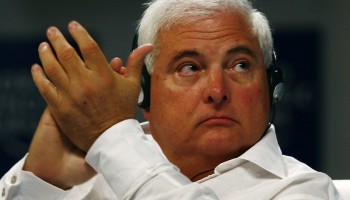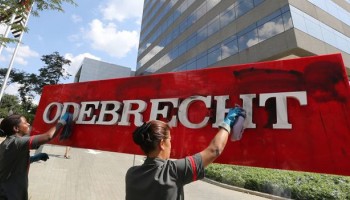Prosecutors said the Brazilian construction giant bribed former governments of Ricardo Martinelli (2009-2014) and Juan Carlos Varela (2014-2019) to secure public works.
The case involves 35 people, including two sons of ex-president Martinelli, six former ministers, former officials and other individuals whom Panama’s anti-corruption judge wants to see in court next year.
The construction company’s executive Marcelo Odebrecht said in one of his statements that bribes were paid “in a complex way” to avoid detection. Secret bank accounts were established in the names of shell companies in several countries, such as Uruguay, Andorra, Switzerland, British Virgin Island and the Bahamas to receive Odebrecht’s bribe payments.
More than $32 million was sent to offshore accounts, from where Martinelli and two of his sons withdrew their ill-gotten gains to buy properties and luxury cars, including two yachts. The company allegedly paid bribes before, during and after the projects were carried out.
Odebrecht “acted as a criminal organization through a Structured Operations Division for the payment of bribes to public officials, through the mechanism of shell companies in several” countries, prosecutors said.
A former minister in Martinelli’s administration allegedly opened an account only to receive bribes linked to the improvement of Panama City's metro.
In addition, Odebrecht provided several millions to political parties for their 2014 presidential campaign, when the accused former president Varela was elected. The company provided $6.7 million to a political party through wire transfers and cash, in order to be taken into account in future bidding processes, if the candidate is elected.
Alleged members of this bribery scheme can face sentences of five to 12 years in prison.






